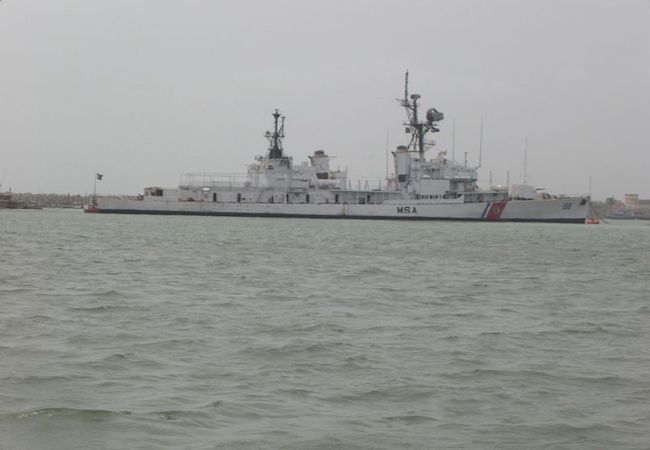Maritime security in Indian Ocean and options for Pakistan

By Qura tul ain Hafeez
The swing in the geopolitical powers from Atlantic to the Pacific Ocean provoke the economies of East Asia, EU, United States (US), China, India, Australia and Japan to turn towards the great maritime region –Indian Ocean Region (IOR). The IOR is a major sea route which connects the Middle East, Africa, and East Asia with Europe and America. The high economic growth of littoral states of Indian Ocean compels them to secure their energy needs in order to continue their purchasing power. This has implications for the sea line of communication of the Indian Ocean especially for the littoral states of the Indian Ocean.
Pakistan shares a 990 kilometers long coast line located at the heart of the Arabian Sea and is among the major littoral states of Indian Ocean region (IOR). It has a bulk of marine economic resources in its Exclusive Economic Zone (EEZ). Its Western coast adjacent with the Gulf makes it strategically substantial by providing shortest sea route to the landlocked Central Asian Republics (CAR’s), Afghanistan and Western province of China. Due to China’s One Belt One Road (OBOR) initiative and China-Pakistan Economic Corridor, the Indian Ocean assumes even more significance for Pakistan.
In the current power dynamic, China’s OBOR initiative and its presences in IOR and South China Sea (SCS) gave momentum to the US’ Pivot to rebalance China. This situation has also catalyzed India’s objective of being the sole administrator of Indian Ocean’s maritime front yard. States like India, US and China are placing greater reliance on the deployment of fleet missile submarines and Submarine Launched Ballistic Missiles (SLBMs). The US had established its naval base in the IOR at Diego Garcia to protect the US vital interests in the region. Although militarization and nuclearization of the IOR by major powers is leading the debate regarding the regional affairs but there are several others concerning matters that required immediate attention from the littoral states of Indian Ocean region?
Although conventional threats have accumulated larger attention of national security policy makers but one cannot ignore the importance of nonconventional threats. Question here pops up in mind that what kind of non-conventional threats are faced by Pakistan in Maritime sector. The answer to that is obvious: terrorism, piracy-armed robbery, drug-narco-trade, human trafficking and transportation of illegal migrants, and illegal, unreported and unregulated fishing and marine pollution.
Maritime security is important for Pakistan because almost 97 % of Pakistan’s trade is carried out through the port of Karachi, Muhammad Bin Qasim, Gawadar, Pasni, Jiwani, Gadani and Ormara. Long stretched coastline and significant harbors provide Pakistan with a location that is ideal for sea-borne trade and commercial activities carried out mostly in foreign ships. Pakistan‘s role in international navigation, the EEZ and Gwadar port are highly significant for the country‘s economic development.
However, the rise of non-conditional threats near the maritime boundaries of Pakistan hinders its economic and security interests. Ignoring the consequences will deliberately place Pakistan in the disadvantageous position with land-locked states, to which Pakistan wants to provide a gateway to Indian Ocean. Unless or until these sub-conventional and non-traditional threats are rectified Pakistan would not be able to achieve a comprehensive national security.
Therefore, it is essential to stabilize the economy for acquiring defence modernization that is essential to deal with non-traditional threats. In addition, Pakistan needs to focus on naval empowerment, for securing its sea lane, international merchandise and maritime interests in IOR.
Last but not the least, the continuously deteriorating threats of terrorism have transnational apprehension for Pakistan’s diplomatic interests in IOR. The possible attacks by radical militant factions on sea ports and coastlines in further addition to weaponization, drugs smuggling and human trafficking could hamper the transnational trade activities at coastal areas of Pakistan.
These prevailing maritime security threats are not only marginalizing Pakistan’s national security and sovereignty but other littoral states of IOR as well. This essentially requires collective cooperation and comprehensive maritime security strategy that is commonly advantageous for national and regional interests. The international ships and ports facilities securing global Maritime standards provide the guidelines for the security and safety of ports and sea lines. Under the procedures and rules of these guidelines a joint intelligence system and security plan can be introduced. It should be focusing on customs, maritime security agency, police, immigration, piracy, and narcotics control etc.
Qura tul ain Hafeez has an M Phil in international relations from Quaid-I Azam University Islamabad. She currently works as a researcher at Strategic Vision Institute in Islamabad. Her domain of work include China as an emerging global power, Sino-Pakistan strategic and civil nuclear relations, South Asian strategic issues, regional integration, nuclear issues including nuclear non-proliferation and NSG, foreign policy analysis, and international politics.




